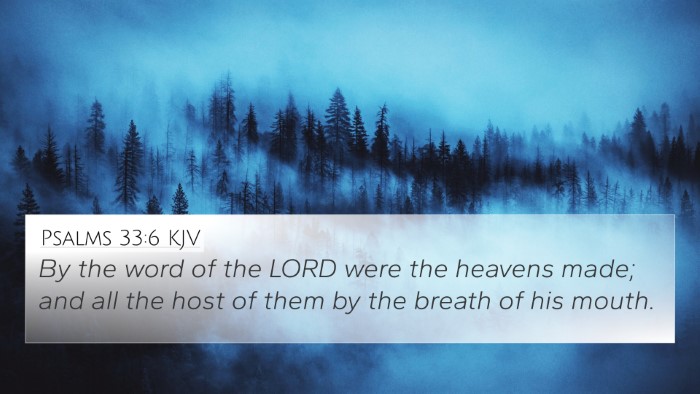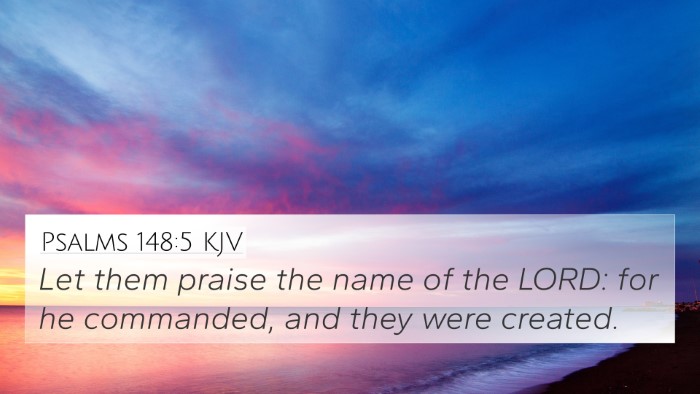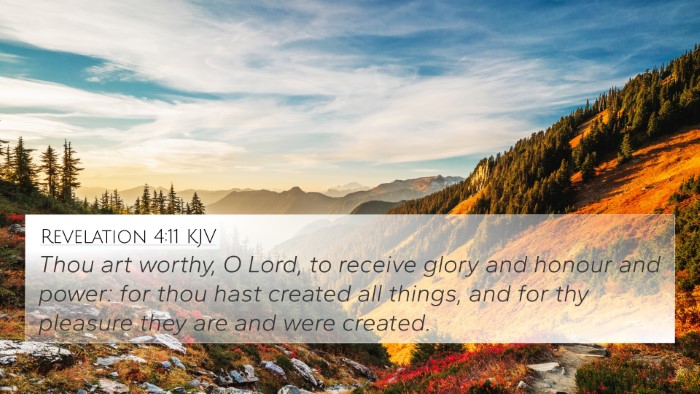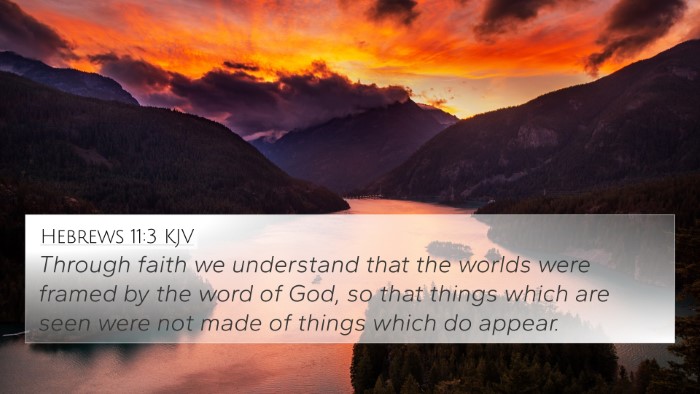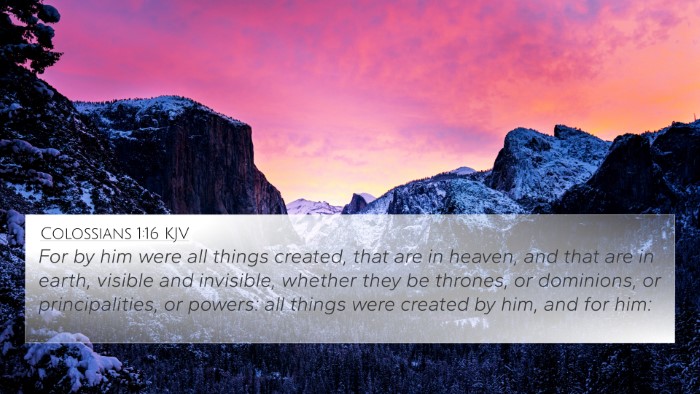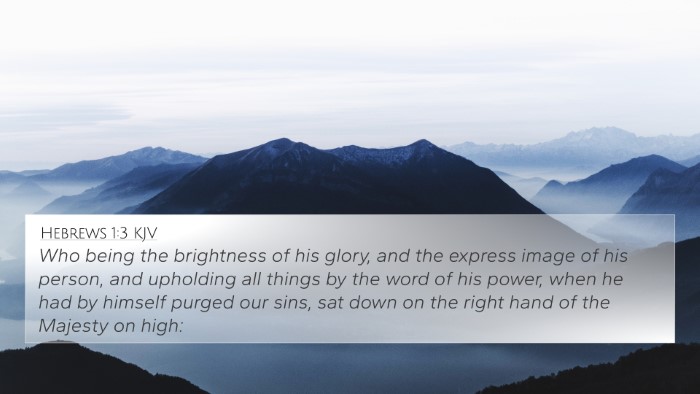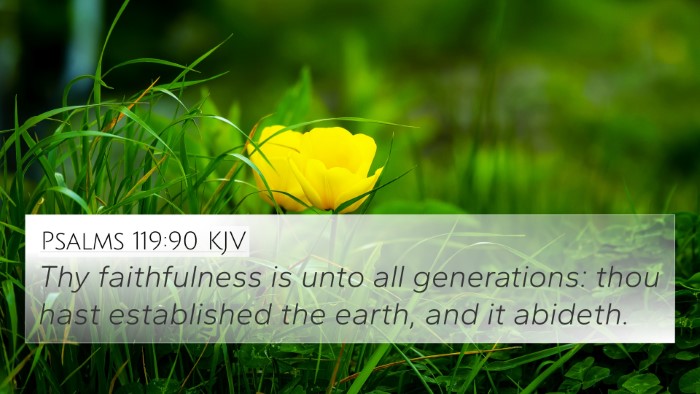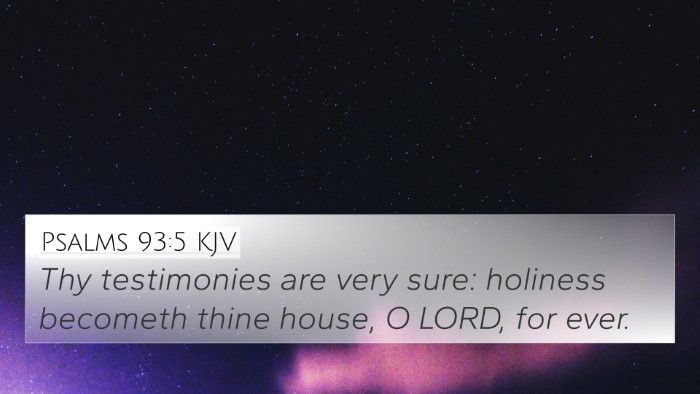Psalms 33:9 Meaning and Interpretation
Verse Reference: Psalms 33:9 - "For he spoke, and it came to be; he commanded, and it stood firm."
This verse from the Psalms underscores the power and authority of God's word in creation. It encapsulates a profound theological truth that God's spoken word is not merely informative but transformative, bringing things into existence by His command. The verse invites believers to reflect on the omnipotence of God and encourages trust in His promises, emphasizing that what God declares is established.
Insights from Public Domain Commentaries
Matthew Henry's Commentary
Matthew Henry emphasizes the creative power of God. He notes that God’s creation is not a result of chance or evolution but is a direct consequence of divine command. The phrase "he spoke, and it came to be" highlights that God's words have inherent authority. Henry draws a connection to the Genesis creation narrative, illustrating how God simply spoke the world into existence, reinforcing the idea of God's sovereignty over all creation.
Albert Barnes' Notes
Albert Barnes interprets this verse to affirm God’s will in the world. He suggests that everything that exists owes its existence to God’s intention and decree. Barnes connects this verse to the prophetic declarations in Scripture, suggesting that just as God commanded creation, so too His word is reliable in shaping history and guiding the faithful. He points out the assurance this brings to believers, emphasizing that what God has promised will surely come to pass.
Adam Clarke's Commentary
Adam Clarke highlights the stability and permanence of God’s created order. He explains that when God commands, the heavenly bodies, nature, and all of creation respond accordingly, thus showcasing His ultimate authority. Clarke also interprets this verse as a call to acknowledge God’s sovereignty and faithfulness, urging believers to trust in His word as it prevails through all circumstances.
Related Bible Cross References
- Genesis 1:3 - "And God said, 'Let there be light,' and there was light." (This verse reflects the same theme of God's commanding voice bringing forth creation.)
- Hebrews 11:3 - "By faith we understand that the universe was formed at God’s command, so that what is seen was not made out of what was visible." (This underscores the faith aspect of God’s creative word.)
- Isaiah 55:11 - "So is my word that goes out from my mouth: It will not return to me empty, but will accomplish what I desire and achieve the purpose for which I sent it." (This emphasizes the efficacy of God's word.)
- John 1:3 - "Through him all things were made; without him nothing was made that has been made." (This ties the role of the Word in creation to Christ.)
- Psalm 148:5 - "Let them praise the name of the LORD, for at his command they were created." (This verse reflects on the praise due to God for His creative power.)
- Job 38:1-4 - God's question to Job about the foundations of the earth underscores His role as creator. "Where were you when I laid the earth's foundation?"
- Romans 4:17 - "...the God who gives life to the dead and calls into being things that were not." (This reaffirms God's ability to create through His word.)
- Revelation 4:11 - "You are worthy, our Lord and God, to receive glory and honor and power, for you created all things, and by your will they were created and have their being." (This connects the theme of worship with God's authority in creation.)
Thematic Connections
The theme of God's authoritative word is woven throughout Scripture, establishing connections between various texts. These links not only deepen our understanding but also encourage believers to trust in the reliability and power of God’s promises. By examining these cross-references, one can gain a more comprehensive view of biblical theology regarding creation and divine sovereignty.
Conclusion
Psalms 33:9 serves as a profound reminder of the creative power of God’s word and the assurance it provides to believers. By exploring the insights from Matthew Henry, Albert Barnes, and Adam Clarke, and linking this verse to others throughout Scripture, we uncover a rich tapestry of meaning that highlights God's authority, sovereignty, and faithfulness. This understanding encourages believers to engage deeply with the text and to see the interconnectedness of the Biblical narrative.
SEO-Optimized Approaches to Understanding Cross-Referencing in the Bible
When studying the Bible and seeking to understand themes, using tools for Bible cross-referencing such as a Bible concordance or a Bible cross-reference guide can significantly enhance your study experience. They can help identify connections between Old and New Testament verses and allow for a detailed cross-reference between Gospels, which is essential for deeper study and sermon preparation.
For those wondering how to find cross-references in the Bible or how to identify connections between specific verses, consider utilizing Bible reference resources and cross-reference study methods. This approach can help illuminate similarities between verses and provide insights into broader themes within scripture.



